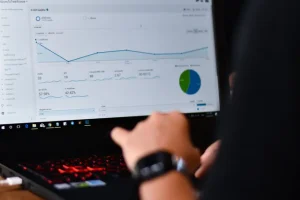Revenue from Wisconsin “Do-Not-Call” List Exceeded Cost by $1,000,000 per Year
Effective August 1, 2014, Wisconsin no longer publishes its own state do-not-call list, and, like most other states, uses the FTC’s do-not-call Registry to enforce its state do-not-call law.
Wisconsin has been an outlier among states in this area for a couple of reasons.
First, Wisconsin has no “established business relationship” exemption. So even though a call might be exempt from the federal list because the consumer purchased from the caller in the past 18 months, state law might apply the same federal list to ban the call. This situation happens in other states which use the federal list but with state laws that differ slightly (or greatly) from the Telemarketing Sales Rule or Telephone Consumer Protection Act.
Second, and more importantly, Wisconsin used to refer to purchase and implementation of the state do-not-call list as a “registration” and charged $700 plus $75 per line (with a maximum of $20,000/year) for that registration. It was not a registration like most state telemarketing registrations, however, because the state was really referring to purchase of the state do-not-call list. So Wisconsin charged more for its state do-not-call list than the FTC charged for the much larger federal Registry, and vastly more than any other state which maintained its own list.
But what now, when there is no more Wisconsin do-not-call list?
The answer is shocking. Wisconsin intends to charge the same $20,000 per year to register telephone solicitors, and NOT provide a state do-not-call list.
Wisconsin will have NO exemptions to that registration. If you make a business-to-consumer outbound call without the prior express consent of the recipient, you need to register there (according to the law) and likely pay $20,000 per year for that registration. There are no established business relationship, publicly-traded company, or other similar exemptions common in other states.
I requested records from the state using the state’s open records law and found that the state netted nearly $1 million per year when it provided the state list, i.e. the amounts received from companies “registering” and purchasing the list exceeded the employee salaries of the persons administering the list by about $1 million per year.
And now the state will not have to publish a list, so the profit will increase significantly.
There is only one slight problem here: commercial telephone solicitation is speech. It’s commercial speech, but it’s well-established that it is still protected by the First Amendment to the United States Constitution. Government may license speech and speakers in some circumstances, but the cost of the license cannot vastly exceed the cost of administering the license. Something Wisconsin has all but admitted this “registration” will do.
If you don’t want to pay $20,000 per year to register in Wisconsin, you should consider joining a First Amendment challenge to the license. While that might cost $150,000 (including an appeal), it’s easy to see that sum is small compared to the mutual burden the state intends to impose. And if a challenge is successful, the plaintiffs could get their attorneys’ fees paid back by the state (maybe from the $1 million per year profit it has been making for years).
Finding a credible expert with the appropriate background, expertise, and credentials can be difficult. CompliancePoint is here to help.





